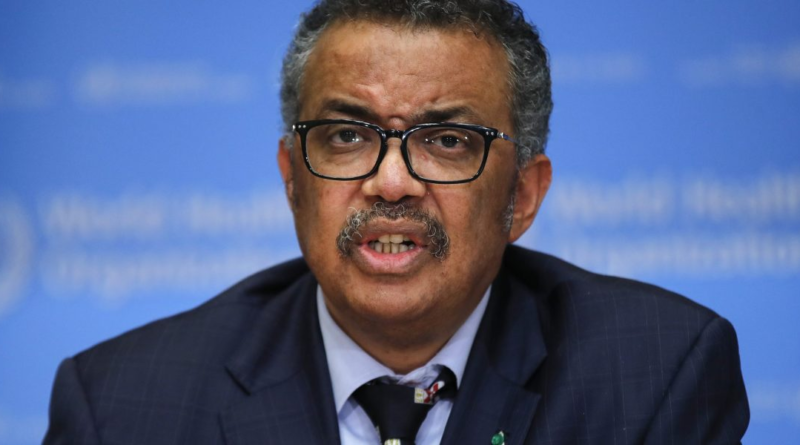As the new strain of mpox reaches Europe, expert warns of delayed Western response
The World Health Organization (WHO) has declared a public health emergency of international concern due to the rising number of cases of mpox.
A new variant of mpox—previously known as monkeypox—emerged in September 2023 and has since surged in the African nation of the Democratic Republic of the Congo (DRC).
According to charity Doctors Without Borders, 479 people have died in the DRC since the start of the year due to the outbreak of a more severe strain, named clade 1b.
The neighboring countries of Rwanda, Uganda, and Kenya have also reported cases of the new variant.
On August 15, the strain was first recorded outside of Africa. A person became infected in Africa and then traveled to Sweden; the individual is receiving treatment in the Stockholm region.
A matter of hours before the Swedish public health agency confirmed it had a case, the WHO’s director-general, Dr. Tedros Adhanom Ghebreyesus, called for a coordinated international response to “stop these outbreaks and save lives.”
On Friday Pakistan’s health authority confirmed it has at least one case of mpox in a patient who had recently returned from a Gulf country—though the strain of mpox the patient has is not yet confirmed.
How is mpox transmitted?
The mpox disease across the spectrum is transmitted via skin-to-skin contact.
However, in the case of clade 1b thus far, the disease is believed to have been transmitted via sexual encounters.
The outbreak of clade 1b is understood to have originated in the mining town of Kamituga in the South Kivu province. A 2024 study published in the National Library of Medicine established the majority of patients in the initial surge were sex workers.
Professor Paul Hunter of the University of East Anglia tells Fortune that because of this fact, some social networks should exercise caution, whereas the wider population need not be as concerned.
Professor Hunter, whose expertise includes the epidemiology of emerging infectious diseases, points to the 2022 outbreak of mpox as an example of why the disease spread so rapidly in the past.
The outbreak two years ago—when patients had often traveled to Europe and North America as opposed to Africa—he explains “was spread predominantly through what’s called sexual networks, where groups of people have a lifestyle where they have multiple sexual partners. And that’s how it spread so effectively and so rapidly last time around.”
“In the West we only really get interested in a disease when it starts directly threatening us”
Unlike COVID, the mpox disease in general does not merely spread via close contact, given the fact it is not airborne.
As a result, the COVID no-gos of traveling, public transport, and congregating in public spaces such as offices are unlikely to be impacted.
Professor Hunter describes the skin-to-skin contact that transmits mpox generally as “intimate,” such as holding hands, sharing a bed with someone, or a parent washing a child.
An air kiss on the cheek—a greeting adopted in European nations—would not pose a risk, for example, Professor Hunter said.
“That’s not going to transmit it, unless there’s something on their cheek and you you press your cheek against their cheek,” he adds.
Why the more aggressive clade 1b strain, in particular, is spreading through sexual intercourse as opposed to intimate contact is not yet known, Professor Hunter added.
“There may have been some genetic evolution,” Professor Hunter adds. “There may not. It might have been just a purely random thing that it [was contracted] by these sex workers and then it’s been transmitting sexually ever since.”
“In the West we only really get interested in a disease when it starts directly threatening us,” Professor Hunter adds to Fortune. “The problem is that so many of these diseases could have been prevented from spreading if the countries on the ground had had the resources.
“When [clade 1b] was first identified, if we had put a lot of effort into actually trying to control it—vaccinating sex workers, making diagnoses—then we might not be having this conversation now.
“But that’s a recurring theme and we saw it to a certain extent with COVID as well. The West only gets concerned about controlling epidemics when we start seeing cases, and then it is almost always too late to eradicate the infection.”
In 2022, Professor Hunter said, the outbreak slowed because of a change in behavior as opposed to a vaccine rollout.
Reliance on vaccines would have proved untenable, however, as, according to Reuters, the WHO’s appeal for $34 million to fight mpox received no response from donors.
What are the symptoms of mpox?
Unlike COVID, the symptoms of mpox are visible to the naked eye.
The disease has an incubation period of three to 17 days, writes the Centre for Disease Control, when the individual may exhibit no symptoms.
Physical symptoms after this incubation include a rash—which may look like pimples or blisters—on the hands, feet, chest, face, or mouth or near the genitals.
Other symptoms include fever, chills, exhaustion, headaches, swollen lymph nodes, muscle aches, and respiratory symptoms like a sore throat or a cough.
Mpox is both curable and preventable.
Despite global outbreaks in recent years, case numbers across the West have been declining. In the U.S. in July, for example, case numbers have neared zero.
Are there vaccines for mpox?
There are currently two vaccines the WHO recommends for mpox.
Western nations such as the U.S. have already vaccinated millions of people—across the States, for example, 1.3 million people have had a dose in the past 20 years.
However, the mpox virus is endemic (regularly occurring) in African nations because this is where the animals that carry the disease reside. As a result of these “reservoirs” of animal populations, the disease continually jumps to humans in these areas.
In these countries, the risk of infection to the public is higher, and access to good public health care is rarer.
“Traditionally, outbreaks are viewed through the lens of global health security,” said Michael Marks, professor of medicine at the London School of Hygiene and Tropical Medicine (LSHTM).
“If it isn’t impacting high-income countries, even if an outbreak is very bad, there will likely be insufficient funding. If we looked at it through the perspective of health as a human right, we would already be providing vaccines and interventions to mpox-affected countries, not to prevent emergencies but because people deserve a right to health care.
“It’s clear current mpox control strategies aren’t working and there is an urgent need for more resources including people, money, and vaccines.”
The Western response to the mpox outbreak has been mixed.
Danish vaccine maker Bavarian Nordic has confirmed it will donate 40,000 doses of its mpox vaccine to Africa Centres for Disease Control.
With demand for its offering increasing, so, too, has the company’s share price—up 16% in the past day at the time of writing.




